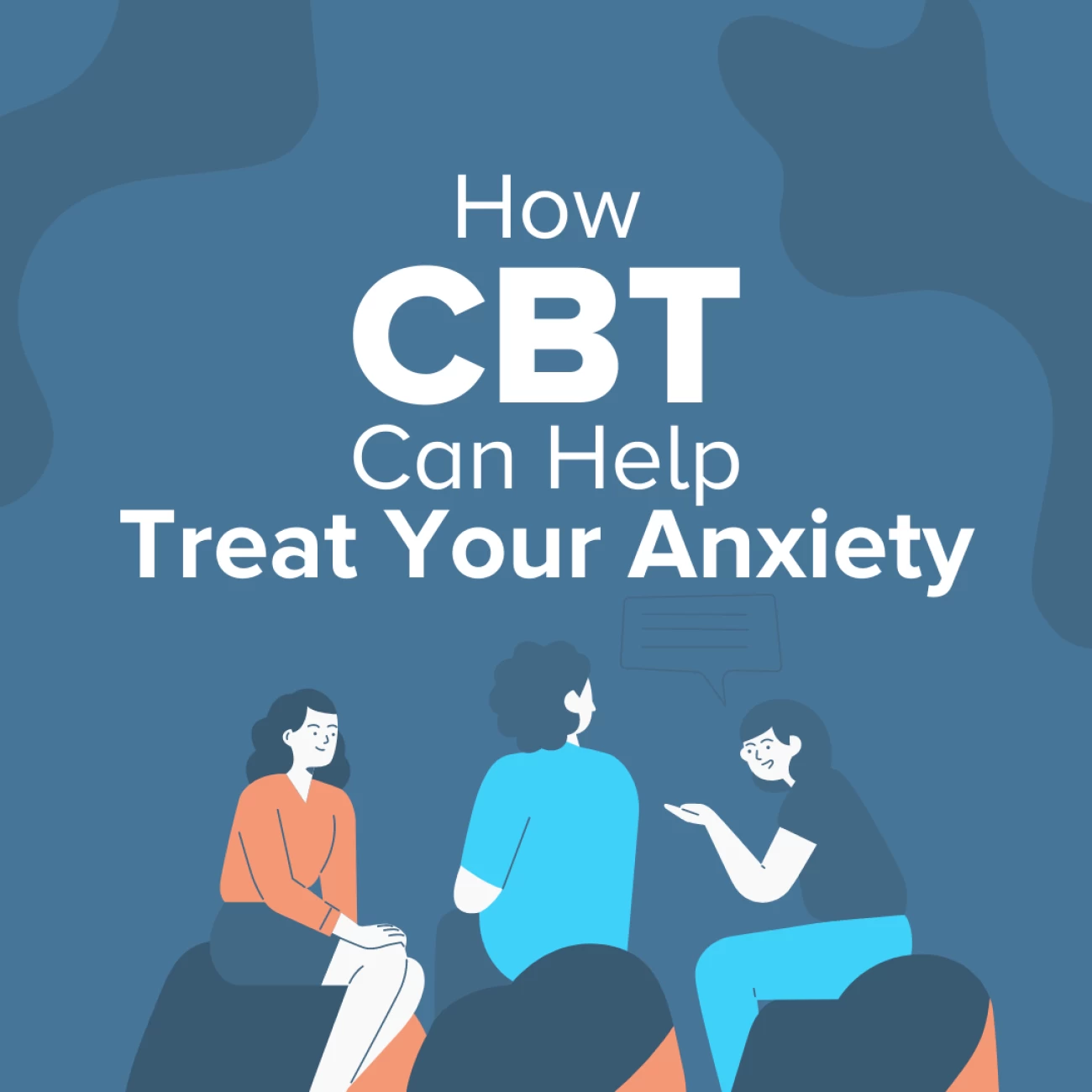Get started for professional counselling for anxiety services
Get started for professional counselling for anxiety services
Blog Article
Checking Out Different Techniques in Therapy for Stress And Anxiety Problem for Long Lasting Change
When dealing with stress and anxiety disorders, it's vital to explore a variety of therapy techniques. Each method uses special understandings and tools to aid you manage your signs efficiently. You might find that integrating techniques can yield the finest results. Nevertheless, understanding the nuances of these techniques is crucial to fostering long lasting change. Suppose the best mix could release a new level of psychological health for you?
Comprehending Anxiety Problems: A Quick Introduction
Anxiety problems, which impact millions of people worldwide, can significantly affect day-to-day live. You might experience frustrating sensations of fear or worry that seem unmanageable. These feelings can cause physical signs and symptoms like a racing heart, sweating, or perhaps wooziness. Common sorts of anxiety problems consist of generalized anxiousness disorder, panic attack, and social anxiousness condition. Each has unique indications, however they all share a tendency to interrupt your routine and relationships.Understanding the root triggers of your anxiety is vital. It might stem from genetics, brain chemistry, or life experiences. Acknowledging your triggers can aid you handle your responses better. It is necessary to keep in mind that you're not the only one in this battle. Lots of people encounter comparable challenges, and looking for aid is a solid step towards feeling better. By finding out about stress and anxiety conditions, you're currently on the course to understanding and handling your problem much more successfully.
Cognitive-Behavioral Therapy: Challenging Adverse Thought Patterns
In Cognitive-Behavioral Therapy, you'll begin by recognizing the adverse idea activates that contribute to your anxiousness. Counseling services for anxiety. You'll work on changing them with more favorable options when you identify these ideas. Together, you'll build reliable coping techniques to help manage your stress and anxiety in daily scenarios

Determining Adverse Idea Triggers
Acknowledging the particular triggers behind your negative ideas can be necessary in handling anxiety when you encounter moments of distress. Start by taking notice of situations that prompt feelings of worry or concern. Is it a crowded space, a forthcoming due date, or a discussion with certain people? Take down these circumstances in a journal. This will help you recognize patterns in your thinking. Likewise, notice physical experiences that accompany your adverse ideas, like a racing heart or tightness in your upper body. By determining these triggers, you gain understanding right into what's sustaining your anxiousness. Recognizing these connections is the first action in challenging those ideas and inevitably regaining control over your emotional actions.
Changing Thoughts With Positives
Testing negative thought patterns is an important action in changing your mindset and minimizing stress and anxiety. You may commonly find on your own trapped in cycles of insecurity or tragic thinking. Rather than letting these ideas determine your feelings, practice replacing them with positive affirmations or realistic options. When you think, "I can't handle this," move it to, "I can take care of challenges one step at a time." This basic modification can significantly impact your psychological state. Consistently identifying and responding to these unfavorable thoughts helps create a much healthier inner discussion. Remember, it takes some time and initiative, however constantly exercising this technique can bring about enduring change, equipping you to encounter anxiousness with renewed confidence and durability.
Structure Coping Techniques With Each Other

Mindfulness and Acceptance-Based Approaches: Growing Present-Moment Recognition
As you browse the intricacies of anxiousness, integrating mindfulness and acceptance-based approaches can significantly enhance your capability to cultivate present-moment awareness. By concentrating on the present moment, you'll find that you can observe your ideas and sensations without judgment. This practice assists you acknowledge your anxiousness without really feeling overwhelmed by it.Engaging in mindfulness workouts, such as deep breathing, body scans, or led meditations, allows you to ground on your own in your current experience. Acceptance-based strategies urge you to welcome your feelings as opposed to fight against them. When you approve your sensations, they lose their power over you.Incorporating these practices right into your everyday routine can transform just how you reply to stress and anxiety. You'll establish durability and discover to browse stressful scenarios with greater simplicity. Ultimately, growing present-moment recognition lays the foundation for long lasting adjustment, encouraging you to lead an extra fulfilling life.
Exposure Therapy: Confronting Anxieties Gradually
Direct exposure treatment assists you challenge your concerns in a steady method, making it less overwhelming. You'll find out methods to face anxiety-provoking circumstances step by action, while also building coping methods to manage your reactions (Counseling services for anxiety). This strategy equips you to take control and lower anxiety with time
Steady Exposure Strategies
When dealing with anxiety, progressively challenging your fears can be an effective way to restore control. This strategy, called progressive direct exposure, entails slowly revealing on your own to the situations or objects that trigger your stress and anxiety. Start with less intimidating scenarios and slowly function your method approximately more difficult ones. For instance, if you're afraid of public speaking, you might start by talking before a mirror, then progress to sharing thoughts with a close friend, and eventually address a tiny team. Each action helps desensitize you to the anxiety, constructing your self-confidence with time. Remember, it's vital to rate on your own and celebrate little triumphes as you relocate with this process, strengthening your capacity to take care of anxiety effectively.
Building Coping Strategies
Building reliable coping strategies is important for managing stress and anxiety, specifically as you confront your worries slowly. One powerful method is useful link exposure treatment, where you start by facing your worries in a controlled way. Start with less frightening situations and gradually work your way approximately even more difficult circumstances. This progressive direct exposure helps desensitize you to anxiety activates, making them less overwhelming.Incorporate leisure methods, such as deep breathing or mindfulness, to calm your mind throughout exposure. Track your progression, celebrating little triumphes along the road to increase your confidence. Remember, it's okay to take your time; the goal isn't excellence however constant improvement. By constructing these strategies, you'll encourage on your own to browse anxiety and welcome life much more fully.
Psychodynamic Therapy: Discovering Source of Stress And Anxiety
Psychodynamic therapy checks out the subconscious mind, revealing the origin of your anxiousness. By examining your thoughts, sensations, and previous experiences, this technique assists you uncover underlying problems and unsolved concerns that may add to your existing anxiety. You'll deal with a therapist to check out childhood years experiences, relationships, and psychological patterns that form your responses today.As you get insight right into these much deeper layers of your subconscious, you'll begin to acknowledge just how previous occasions influence your present behavior. This understanding can lead to catharsis, allowing you to process feelings you might have suppressed.Through the restorative partnership, you can additionally determine protection mechanisms that might have established with time, providing a more clear path to change. Ultimately, psychodynamic therapy outfits you with the tools to resolve your stress and anxiety at its core, promoting enduring transformation in your emotional health.
Integrative and Alternative Strategies: Combining Techniques for Greater Effectiveness
Integrating various restorative strategies can enhance your journey toward handling anxiety better (Counseling services for anxiety). By integrating elements from cognitive-behavioral therapy, mindfulness methods, and all natural techniques, you can create an individualized approach that addresses your unique requirements. For circumstances, you might make use of cognitive-behavioral techniques to test negative idea patterns while integrating mindfulness exercises to ground on your own in the here and now moment.Additionally, discovering holistic techniques such as yoga or meditation can promote leisure and decrease stress and anxiety signs and symptoms. This blend permits you to develop greater self-awareness and resilience.Experimenting with these varied methods can assist you uncover what reverberates most with you. Remember, it's regarding locating a harmony that functions, as opposed to adhering to a solitary method. This integrative technique not only offers immediate alleviation but also promotes lasting abilities for handling anxiety, equipping you to recover control over your life

The Duty of Support Equipments: Building Resilience With Link
While it could appear that taking care of anxiousness is a singular journey, having a solid support group can play an important role in your strength. Bordering on your own with compassionate close friends, family, or support system creates a safe room where you find can freely share your experiences and feelings. When you attach with others, you advise on your own that you're not the only one in this struggle.These partnerships provide encouragement and can give useful coping techniques that have actually worked for others. It's additionally a possibility to acquire viewpoint; friends can assist you see scenarios differently, reducing sensations of isolation.Moreover, emotional support promotes a feeling of belonging, which can substantially minimize anxiousness signs and symptoms. By leaning on your support system, you can build resilience and tackle obstacles better. Bear in mind, getting to out for help suggests toughness, and it can make all the difference in your journey towards managing anxiousness.
Regularly Asked Concerns

What Are the Typical Signs of Anxiety Conditions?
You could experience uneasyness, tiredness, trouble focusing, irritation, muscle mass tension, and sleep disturbances. Physical symptoms can consist of fast heart beat, sweating, and shivering. Identifying these indicators early can aid you look for suitable assistance and treatment.
The Length Of Time Does Treatment Usually Last for Anxiety Disorders?
Treatment for anxiety disorders typically lasts anywhere from a couple of weeks to a number of months. It really depends upon your individual needs, progression, and the methods your specialist utilizes to aid you handle your stress and anxiety properly.
Can Medication Be Utilized Along With Treatment for Anxiety?
Yes, medication can absolutely be utilized along with therapy for anxiousness. Integrating both strategies frequently boosts treatment effectiveness, helping you manage signs while checking out underlying problems via therapy. Constantly consult your doctor for tailored suggestions.
Are There Self-Help Techniques for Managing Anxiousness?
Yes, there are numerous self-help approaches for managing anxiety. You can practice mindfulness, participate in routine exercise, maintain a well balanced diet, establish a regular, and utilize deep breathing strategies to help in reducing anxiety symptoms properly.
Just how Do I Know if I Required Expert Aid for Stress And Anxiety?
You ought to take into consideration looking for specialist aid for anxiousness if it disrupts daily life, causes significant distress, or if self-help strategies aren't functioning. Trust your impulses; reaching out can lead to much better coping abilities and assistance. Common types of anxiety problems include generalized anxiousness problem, panic condition, and social anxiousness disorder. When you experience minutes of distress, identifying the certain triggers behind your adverse thoughts can be essential in managing anxiousness. Replacing adverse ideas is just the start of taking care of anxiousness properly. By examining your ideas, sensations, and previous experiences, this approach assists you discover underlying problems and unresolved concerns that may contribute to your existing stress and anxiety. It's also a possibility to get viewpoint; buddies can aid you see circumstances differently, lowering feelings of isolation.Moreover, psychological support check this site out promotes a sense of belonging, which can significantly alleviate stress and anxiety signs.
Report this page